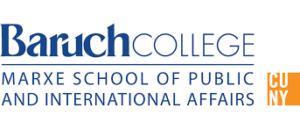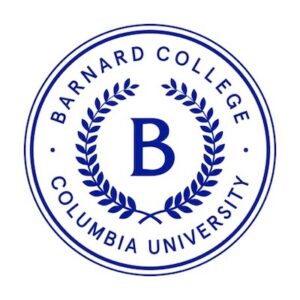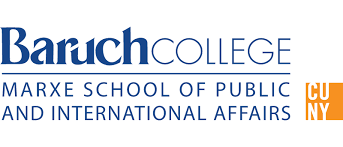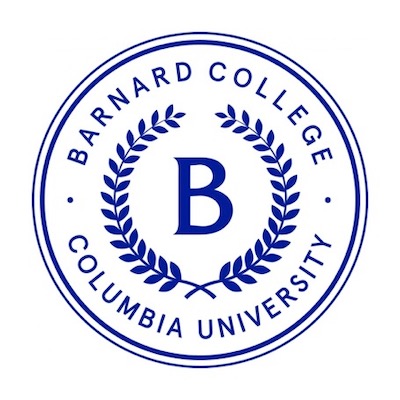The Non-State Armed Governance Project is coordinated by Eduardo Moncada (Barnard College, Columbia University), Ana Arjona (Northwestern University), Enrique Desmond Arias (Baruch College, City University of New York), and Zachariah Mampilly (Marxe School of Public and International Affairs, City University of New York).
Organizers

Eduardo Moncada. I am an Associate Professor in the Department of Political Science at Barnard College, Columbia University. My research agenda focuses broadly on crime, urban politics, and subnational comparative analysis. I carry out most of my research in Latin America, but am increasingly interested in building new theoretical, conceptual and empirical connections with similar political dynamics in other regions of the world.
In my first book, Cities, Business and the Politics of Urban Violence in Latin America (Stanford University Press, 2016), I analyzed how the relationships between city mayors, business interests, and criminal organizations shape the ways in which major developing world cities respond to the challenge of urban violence. In my current book, Resisting Extortion: Victims, Criminals, and States in Latin America (Cambridge University Press, Cambridge Studies in Comparative Politics, 2021), I tackle the following question: Why do victims resist similar forms of criminal victimization in contrasting ways? In this book I use the widespread but understudied phenomenon of criminal extortion in Latin America to introduce resistance to criminal victimization into the emerging research on the politics of crime. Resisting Extortion received the 2022 Outstanding Book Award from the Division of International Criminology of the American Society of Criminology (ASC), the Best Publication of 2022 from the Defense, Public Security and Democracy Section of the Latin American Studies Association (LASA), Honorable Mention for the 2022 Giovanni Sartori Book Award from the Qualitative and Multi-Method Research Section of the American Political Science Association (APSA), Honorable Mention for the 2023 Bryce Wood Book Award from the Latin American Studies Association (LASA), and was the Co-Winner of the 2022 Best Book Award from the International Association for the Study of Organized Crime (IASOC). I have conducted extensive fieldwork in Colombia, El Salvador, Mexico and other parts of Latin America.

Ana Arjona. Ph.D., Yale University, is an Associate Professor at the Department of Political Science at Northwestern University. She is also co-editor of the journal Perspectives on Politics. She has been a fellow at the Earth Institute at Columbia University in New York, and at the Kellogg Institute for International Studies at the University of Notre Dame in Indiana. In 2018-2019 she was the Director of the Center for the Study of Security and Drugs at Los Andes University in Colombia. Her academic interests include violence and conflict, organized crime, drug policy, the foundations of political order, state building, local governance, and the links between crime and politics. She is also interested in the philosophy of social science. Her current research projects investigate the causes and consequences of institutional change and individual agency in contexts of violence. Her work combines different methods and types of evidence. She has conducted extensive fieldwork in Colombia and has also carried field research in Kosovo.
Her award winning book, Rebelocracy: Social Order in the Colombian Civil War (Cambridge University Press, 2016), proposes a theory to explain order and disorder in war zones, as well as the form order takes when it emerges, giving place to different forms of rebel governance. She also co-edited Rebel Governance in Civil War (Cambridge University Press, 2015), the first edited volume on rebel governance. She is currently working on different projects on individual and collective behavior in contexts where non-state armed groups operate, as well as on the legacies of organized violence and militarized governance.

Zachariah C. Mampilly. He is the Marxe Endowed Chair of International Affairs at the Marxe School of Public and International Affairs, CUNY and a member of the doctoral faculty in the Department of Political Science at the Graduate Center, CUNY. He is the Co-Founder of the Program on African Social Research. Previously, he was Professor of Political Science and Director of the Africana Studies Program at Vassar College. In 2012/2013, he was a Visiting Professor at the University of Dar es Salaam, Tanzania.

Enrique Desmond Arias is Marxe Chair of Western Hemisphere Affairs and Professor at Baruch College and the Graduate Center, City University of New York. His research focuses on security and politics in Latin America and the Caribbean. He is the author of Criminal Enterprises and Governance in Latin America and the Caribbean (Cambridge University Press) and Drugs and Democracy in Rio de Janeiro (University of North Carolina Press). He is the co-editor of Violent Democracies in Latin America (Duke University Press) and Cocaine: A Moral Economy (Duke University Press). His writing has appeared in Comparative Politics, Perspectives on Politics, the Latin American Research Review, Current Sociology, the Journal of Latin American Studies, Policing and Society, Qualitative Sociology, Latin American Politics and Society, America’s Quarterly, Studies in Comparative International Development, Americas Quarterly, Foreign Affairs Latinoamérica and the Revista de Estudios Socio-Juridicos.
The American Council of Learned Societies, the Open Society Foundation, the Tinker Foundation, the Fulbright Scholars program, and the Harry Frank Guggenheim Foundation have provided funding for his research. In addition to his scholarship, he has served as a consultant to the Ford Foundation, the United Nations Development Programme, the United Nations Office on Drugs and Crime, and the United Nations Human Settlement Programme (UNHabitat). As part of his work with these last two organizations, Professor Arias was the principal author of the United Nations Introductory Handbook on Policing Urban Space.
Research Assistant

Juan Corredor-Garcia is a PhD student of Political Science at the Graduate Center, City University of New York (CUNY). He is currently a Fulbright/Minciencias scholar and co-chair of the Colombian Studies Group. He studies the intersection between rebel and criminal governance in Latin America from a civilian resistance perspective, as well as the politics of green militarization in the Amazon Rainforest. His research has been supported by the American Political Science Association, the CUNY Graduate Center, and the Eiffel Scholarship Program of Academic Excellence.
Prior coming to CUNY, he worked as a researcher at the Colombian Truth Commission, Fundación Ideas para la Paz, and InSight Crime. He also served as an advisor to the Risk Assessment Sub-directorate of the National Protection Unit, an entity in charge of implementing protection measures for activists, human rights, and environmental defenders. His book project, “Varieties of peace. Media, discourse and power in the Havana Agreement” (Editorial Universidad del Rosario), analyzes through a comparative political-sociological approach the media coverage of the Colombian state and the FARC’s negotiation and provides a framework to determine the type of peace that each media outlet outlined in its editorial line. His latest publications include The Logic of “War on Deforestation”: A Military Response to Climate Change in the Colombian Amazon (Alternatives, 2023), Pathways of Post-Conflict Violence in Colombia (Small Wars & Insurgencies, 2022) and ¿Qué quiere decir la paz? Sociología de los medios en el Acuerdo de La Habana. He holds a BA in Political Science from Universidad del Rosario and a MPhil in Political Sociology from Sciences Po Bordeaux – Université de Bordeaux thanks to the Eiffel Excellence Scholarship Program.
Sponsors











